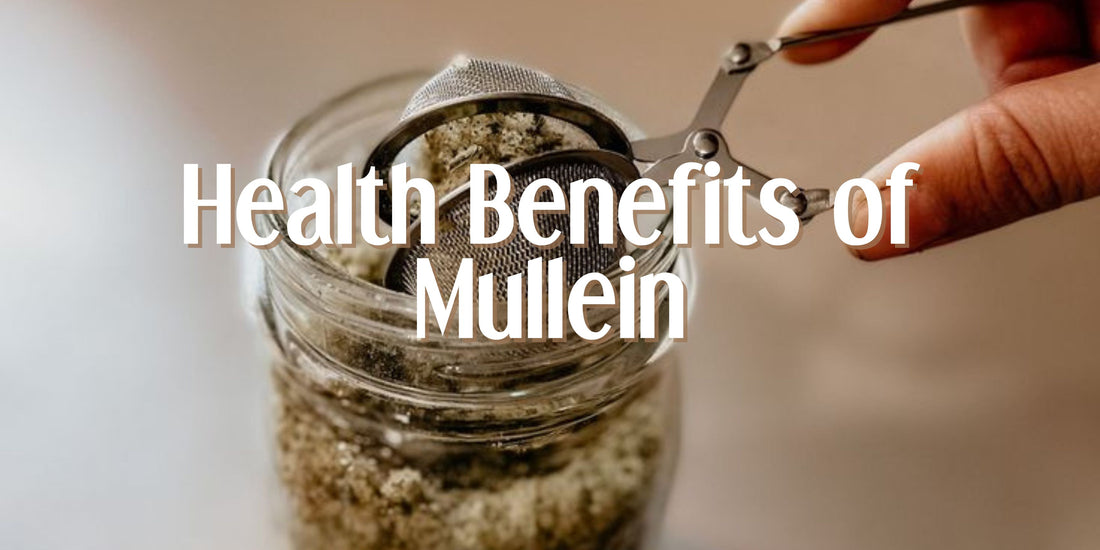Mullein is nature's versatile wonder, especially if you're a stoner or once used to smoke.
Discover the botanical marvel that's taking the world by storm – Mullein! This powerhouse herb isn't just your average plant; it's a game-changer for health, wellness, and so much more. First, let's explain what mullein is to those who have never heard of this herb.
What is mullein?
Mullein, scientifically known as Verbascum thapsus, is a flowering plant native to Europe, Asia, and North Africa, but it has been naturalized in many parts of the world. It's characterized by its tall stalks, which can reach up to several feet in height, adorned with large, soft, fuzzy leaves and yellow flowers that bloom in summer.
Mullein has a long history of medicinal use. Various parts of the plant, including the leaves, flowers, and roots, have been utilized in traditional herbal medicine for a range of purposes.
Uses/Health properties
Just like anything in life, Google has brought you to our page to understand this amazing herb and why smokers love it so much. While mullein has a long history of traditional use, scientific research on its efficacy and safety is somewhat limited.
Some common uses include:
Respiratory Support:
Mullein is often used to alleviate respiratory issues such as coughs, bronchitis, asthma, and congestion. It is believed to have expectorant properties, helping to clear mucus from the respiratory tract.Ear Health:
Mullein oil, made by steeping the flowers in oil, has been traditionally used to address earaches and ear infections. It's believed to have soothing and antimicrobial properties.Anti-inflammatory:
Mullein has been used topically to soothe skin inflammation and irritation. It's also used in herbal teas and extracts for its purported anti-inflammatory effects.Pain Relief:
Some traditional medicine practices use mullein for pain relief, including for conditions such as joint pain and headaches.Diuretic:
Mullein has diuretic properties, which means it may increase urine production and promote detoxification in the body.How to take mullein
Mullein can be consumed in various ways to harness its potential health benefits. We have curated a detailed list of the different ways so try to test out different options to see what best suits you. Here are some common methods of taking mullein:
Herbal Tea:
One of the most popular ways to consume mullein is by brewing it into a tea. To make mullein tea, steep 1-2 teaspoons of dried mullein leaves or flowers in hot water for 10-15 minutes. You can sweeten the tea with honey if desired. Drinking 1-3 cups of mullein tea per day is a common recommendation.
Tincture/Extracts:
Mullein tinctures are concentrated liquid extracts made by soaking mullein leaves or flowers in alcohol or glycerin. Tinctures can be taken orally by adding a few drops to water or juice. Follow the dosage instructions provided on the product label or consult with a healthcare professional for guidance.
Capsules or Tablets:
Mullein supplements in the form of capsules or tablets are available in some health food stores or online. Follow the dosage instructions provided on the product packaging or consult with a healthcare professional for appropriate dosing.
Topical Applications:
Mullein oil, made by infusing mullein flowers in a carrier oil such as olive oil or almond oil, can be applied topically to the skin to soothe irritation or inflammation. Mullein oil is commonly used for earaches and ear infections. Apply a few drops of mullein oil to the affected area and gently massage it in.
Smoking Mullein (tobacco replacement):
While less common, some people smoke dried mullein leaves as a remedy for respiratory issues such as coughs and congestion. There are many herbal mixes on the market that include mullein, especially since the taste of this herb is more earthy for those looking for a more flavorful experience. However, smoking any substance carries health risks and may not be suitable for everyone.
Mullein Side Effects
Unfortunately, like with anything herbal, there have been minnimmal studies researching the effects of herbs. Comprised below, are the results from a collection of studies made by RxList.
Mullein is generally considered safe when used appropriately, but like any herbal remedy, it may cause side effects in some individuals. Common side effects associated with mullein use may include:
Allergic Reactions:
Some individuals may be allergic to mullein or other plants in the same botanical family (Scrophulariaceae). Allergic reactions can manifest as skin rash, itching, hives, or respiratory symptoms such as wheezing or difficulty breathing.Gastrointestinal Upset:
In some cases, mullein tea or supplements may cause mild gastrointestinal discomfort, such as nausea, bloating, or diarrhea. This is more likely to occur in individuals with sensitive stomachs or those who consume large amounts of mullein.Skin Irritation:
Applying mullein oil topically may cause skin irritation or allergic reactions in some individuals, especially those with sensitive skin. It's advisable to perform a patch test before applying mullein oil to a larger area of the skin.Interactions with Medications:
Mullein may interact with certain medications, particularly those metabolized by the liver. If you are taking prescription medications, especially blood thinners, sedatives, or medications for diabetes, consult with a healthcare professional before using mullein to avoid potential interactions.Respiratory Issues:
While mullein is commonly used to support respiratory health, inhaling the dust from dried mullein leaves or flowers may irritate the respiratory tract and exacerbate symptoms in individuals with asthma or other respiratory conditions.Photosensitivity:
Some individuals may experience increased sensitivity to sunlight (photosensitivity) after consuming or applying mullein, leading to sunburn or skin irritation with sun exposure.
It's important to use mullein responsibly and in moderation. If you experience any adverse reactions or unusual symptoms after using mullein, discontinue use and consult with a healthcare professional. Pregnant and breastfeeding women should also exercise caution and consult with a healthcare provider before using mullein or any herbal remedies.
Overall, mullein is the perfect herb to replace tobacco and with added health benefits, unlike the cancer-causing and harmful nicotine. Please do proper research before trying anything mentioned above.

